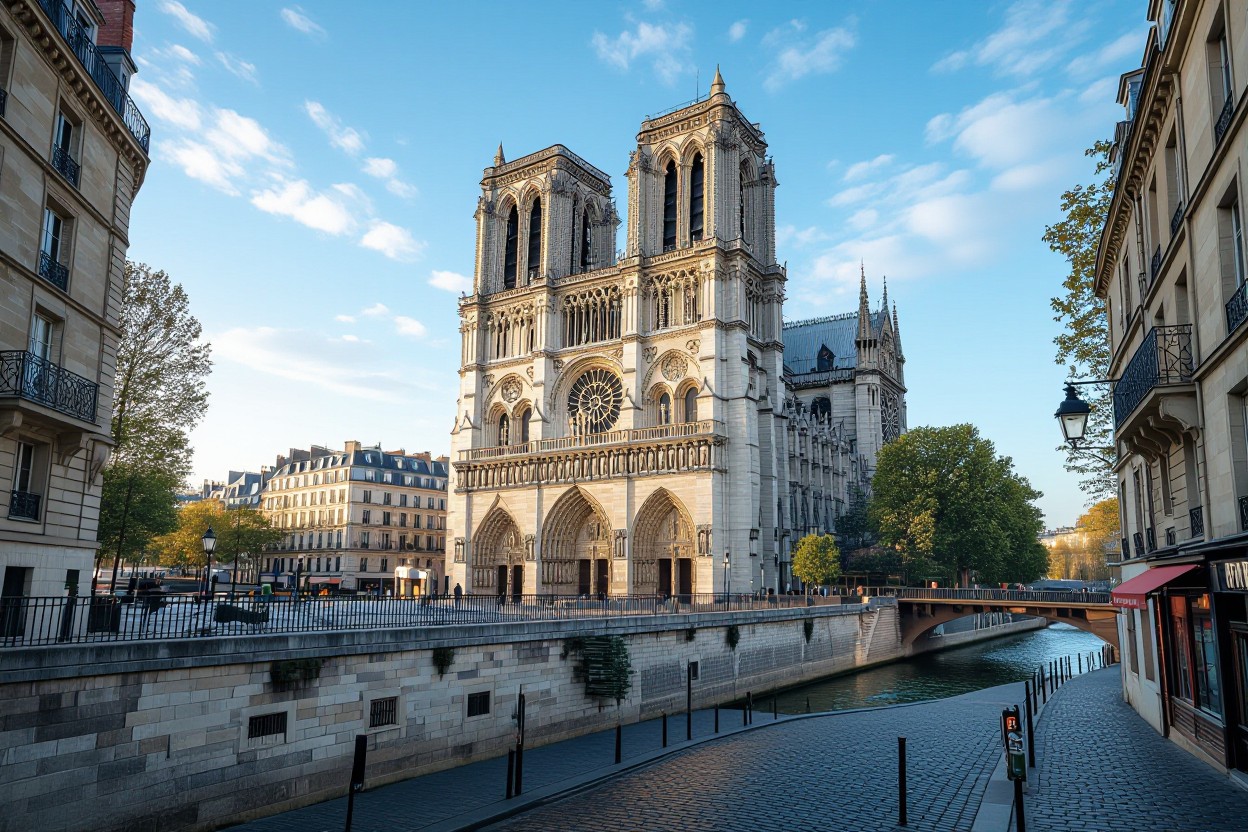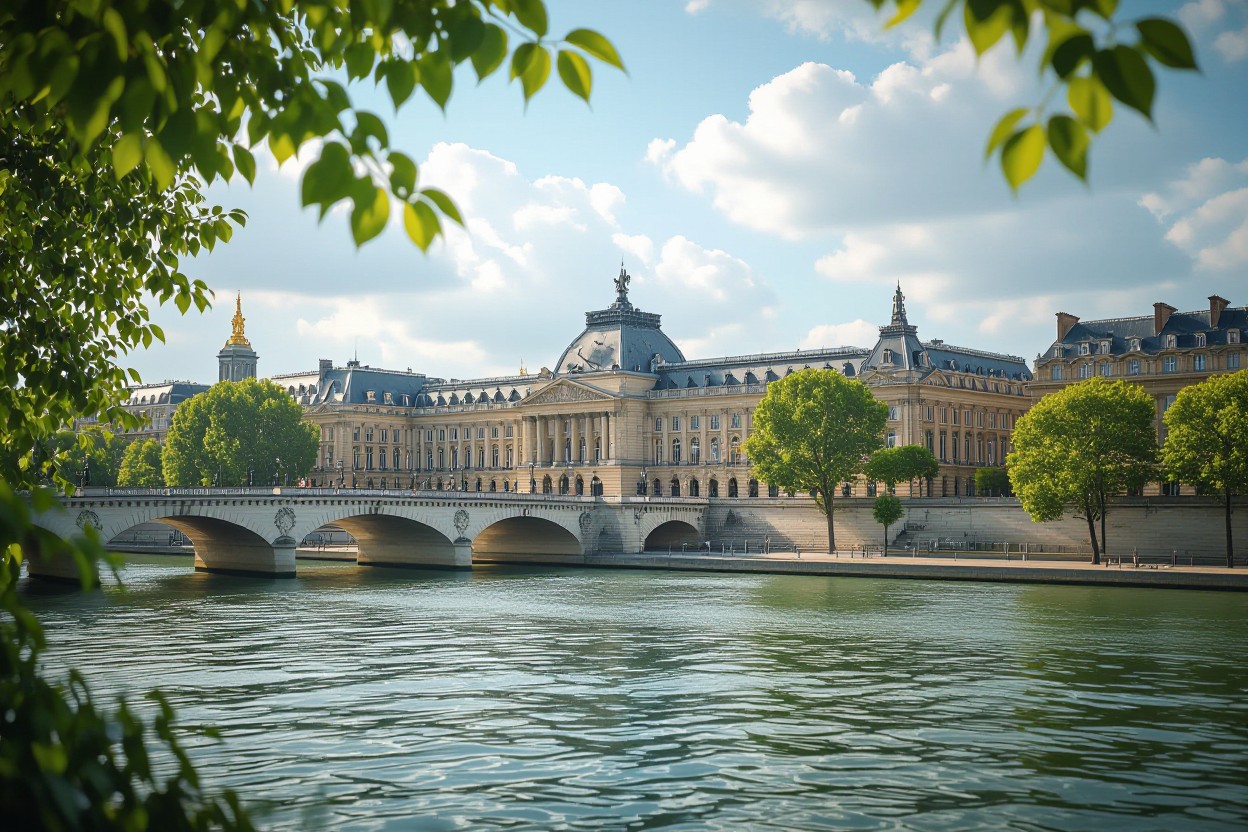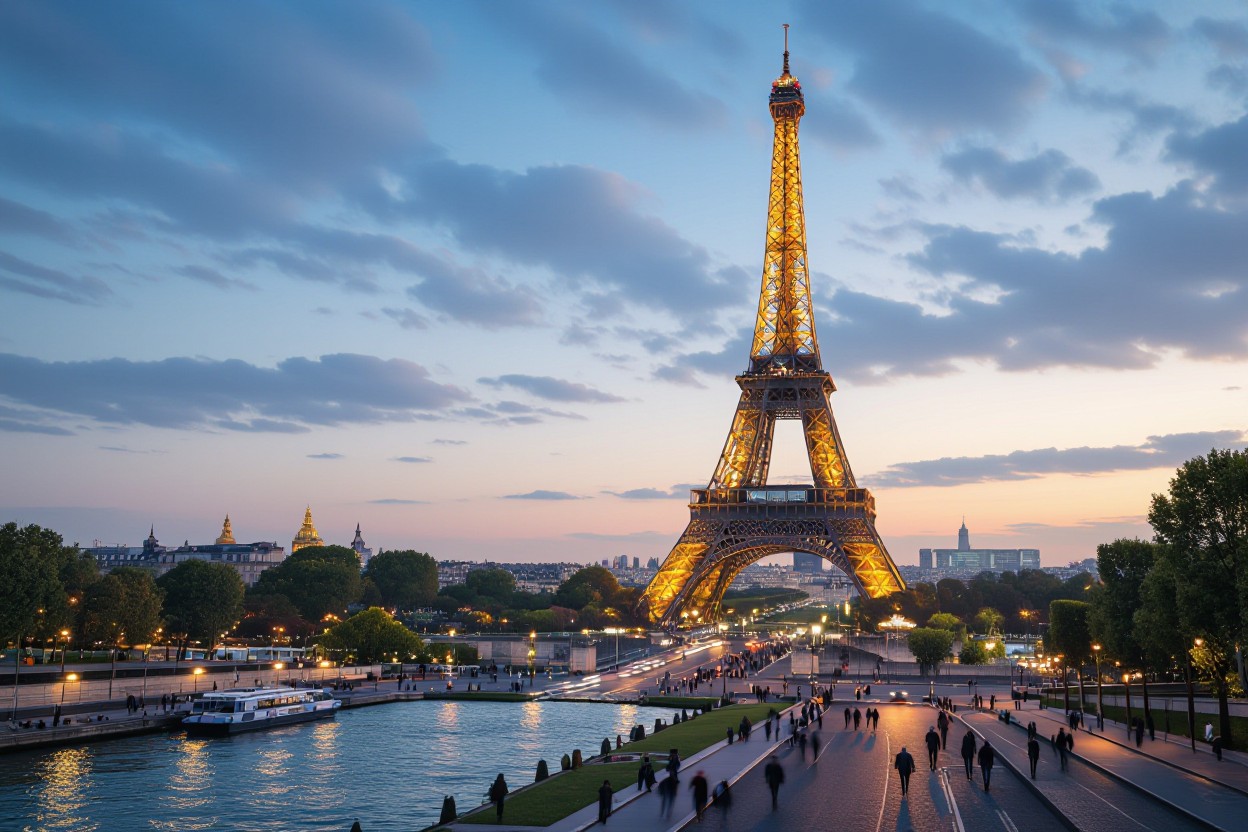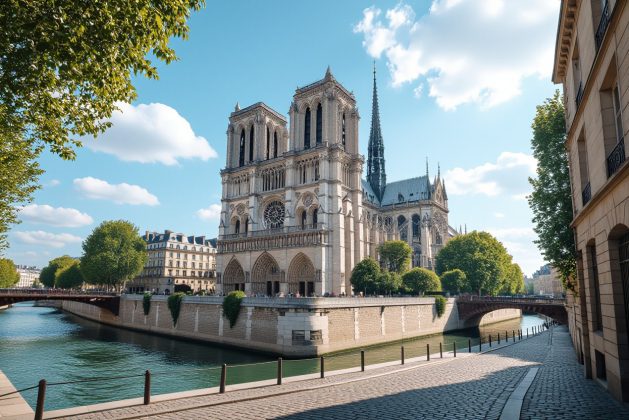Over centuries, the capital of France has been synonymous with Paris, a city famed for its rich history and culture. Yet, as I explore this topic, I invite you to consider how Paris shaped the nation’s identity and the significance of its historical landmarks. From the grandeur of the Eiffel Tower to the revolutionary tales embedded in its streets, understanding Paris’s role offers you a deeper appreciation of France’s past and present.

The Evolution of Paris: From Ancient Settlement to Capital City
Tracing the growth of Paris offers a vivid timeline of transformation, starting as a small Gallic settlement known as Lutetia around the 3rd century BC. Over centuries, its strategic location on the Seine River facilitated trade and defense, gradually swelling its influence. As power centralized, Paris evolved beyond a mere town into the heart of political and cultural life in France. Today, the city’s layers of history remain tangible, with its architecture and urban layout reflecting the many epochs it has endured and adapted through.
The Founding of Paris: A Brief History
The roots of Paris trace back to the Parisii tribe, a Celtic group that settled on the Île de la Cité. The Romans later renamed the settlement Lutetia in the 1st century BC, recognizing its prime riverine location. This early urban center laid the groundwork for Paris’s eventual rise, with remnants like Roman baths and city walls narrating its ancient beginnings amidst its modern surroundings. The merging of Gallic and Roman cultures here set the stage for Paris’s unique identity.
The Rise of Paris During the Middle Ages
Throughout the Middle Ages, Paris expanded not only in size but in political importance, becoming the seat of the Capetian dynasty. The construction of iconic landmarks such as Notre-Dame Cathedral and the University of Paris marked its emergence as a center of religion, education, and royal power. Despite episodes of conflict and plague, the city’s population surged past 100,000 by the 14th century, reflecting its burgeoning influence across Europe.
Diving deeper into the medieval era, Paris’s growth was not merely physical but institutional. The establishment of the Sorbonne in 1257 fostered academic rigor that attracted scholars from all over Europe, positioning the city as an intellectual beacon. Royal patronage continuously reinforced Paris’s prominence; kings expanded fortifications such as the Louvre fortress, originally built to protect against Viking raids. The medieval period set a foundation of resilience and prestige that would define the city’s future as France’s enduring capital.

Paris: The Heart of French Political Power
Paris has served as the epicenter of political authority in France for centuries, anchoring the country’s governance and administration. The city houses iconic institutions such as the Palais Bourbon and the Élysée Palace, where legislative and executive powers reside. Over the years, Paris has witnessed landmark political events that shaped France’s direction from monarchy to republics, embedding the city deeply in the nation’s political identity. Your understanding of French political history remains incomplete without acknowledging Paris’s role as a hub where power is exercised and contested.
The Impact of the French Revolution on the City’s Status
The French Revolution transformed Paris from a royal capital to a symbol of popular sovereignty and radical change. Revolutionary events like the storming of the Bastille in 1789 firmly established Paris as the stage for political upheaval, marking the city as the heart of revolutionary fervor. This period elevated Paris’s status beyond just a political center; it became a beacon for democratic ideals and social reform, reshaping its identity for centuries to come.
Paris as a Symbol of National Identity
Paris embodies France’s national identity, blending history, culture, and politics into a unique symbol recognized worldwide. Landmarks such as the Eiffel Tower and the Notre-Dame Cathedral serve not only as tourist attractions but as emblems of French innovation and resilience. The city’s role in art, fashion, and intellectual movements reflects the dynamic spirit of France itself, reinforcing why Paris continues to represent the nation’s heart and soul.
Diving deeper, Paris’s status as an emblem of national identity extends through its urban fabric and cultural institutions that continuously inspire patriotism. Events like Bastille Day celebrations on the Champs-Élysées showcase how the city integrates its political history with public life, fostering unity. Moreover, Parisian museums, theaters, and universities act as custodians of France’s rich heritage, influencing not just citizens but also global perceptions of French culture. This multifaceted identity makes Paris a living symbol of France’s enduring values and ambitions.

Cultural Significance: More Than Just a City
Paris embodies the very essence of cultural evolution, serving as a dynamic canvas where history, art, and philosophy converge. Beyond its iconic landmarks, the city pulses with the energy of generations of creators and thinkers who have shaped not only France but global culture. Each arrondissement offers a unique blend of tradition and innovation, inviting you into the layered narrative of human expression that extends far past the conventional image of a mere capital city.
Paris as a Cradle of Artistic Movements
The city’s streets have witnessed the birth of artistic revolutions, from Impressionism’s soft brushstrokes to Surrealism’s dreamscapes. Artists like Monet, Picasso, and Dali found in Paris an inspiring home. Galleries such as the Louvre and the Musée d’Orsay hold masterpieces that chronicle centuries of creativity, making Paris a continuous epicenter for innovative artistic movements that challenge and redefine aesthetic norms.
The Influence of Parisian Intellectuals and Thinkers
The intellectual fabric woven by Parisian philosophers and writers like Voltaire, Sartre, and Simone de Beauvoir transformed social and political thought worldwide. Cafés on the Left Bank served as incubators for ideas that questioned authority and explored existential freedom, fueling movements that resonate through modern philosophy and politics.
Delving deeper, the Parisian intellectual tradition thrived on salons and cafés where lively debates sparkled among diverse thinkers, from Marx to Beauvoir. These gatherings influenced global ideologies, with Sartre’s existentialism challenging established norms and Beauvoir’s feminism reshaping views on gender. This vibrant intellectual ecosystem powered social reforms and inspired revolutions, underscoring Paris’s role not just as a geographical capital, but as a powerhouse of progressive thought that continues to impact your understanding of society today.
Economic Impact: Paris in the Global Arena
Paris stands as a powerhouse in the global economy, its influence extending far beyond French borders. The city serves as a hub for multifaceted industries, particularly luxury goods, technology, and finance, contributing significantly to both France’s GDP and international economic networks. Hosting major international headquarters and a dynamic startup ecosystem, Paris continues to solidify its place as a center of innovation and commerce.
The Role of Paris in World Trade and Finance
Banking giants like BNP Paribas and Société Générale base significant operations in Paris, fostering its status as a financial nucleus. The Paris Stock Exchange (Euronext) remains one of the largest in Europe, influencing markets worldwide. With its strategic location, Paris also acts as a crossroads for trade routes connecting Europe, Africa, and Asia, encouraging foreign investment and bolstering France’s position in the global financial ecosystem.
Tourism: Paris as a Magnet for Global Visitors
Paris attracts over 30 million tourists annually, driven by iconic landmarks such as the Eiffel Tower and Louvre Museum, plus its reputation for art, fashion, and gastronomy. This influx creates substantial revenue, supporting thousands of jobs and underpinning local businesses. Festivals, exhibitions, and culinary events enhance its allure, making Paris not only a historic capital but a vibrant, living destination in the global tourism industry.
Diving deeper into tourism, the city’s infrastructure caters to every type of traveler: luxury hotels alongside charming boutique inns, extensive metro and rail networks facilitating easy access, and guided tours that immerse visitors in Paris’s rich heritage. Events like Paris Fashion Week and the Nuit Blanche art festival draw millions, injecting both culture and commerce into local communities. This blend of tradition and modernity energizes the economy and sustains Paris’s global appeal.
The Wider Region: Exploring France Beyond the Capital
While Paris dominates as the heart of France, the surrounding regions offer a rich tapestry of history, culture, and economic vitality that significantly shapes the nation. Areas like Normandy, Brittany, and Provence each tell unique stories through their landscapes, architecture, and culinary traditions. These regions have witnessed pivotal historical moments—Normandy’s D-Day beaches, the lavender fields of Provence, or the Celtic heritage of Brittany—that contribute layers of depth to the French identity beyond what Paris alone conveys.
Notable Cities and Regions That Shape French Identity
Cities such as Lyon, Marseille, and Bordeaux are powerfully emblematic of France’s diversity. Lyon, often hailed as the gastronomic capital, blends Renaissance charm with its role in silk production. Marseille’s status as a vibrant Mediterranean port represents France’s multiculturalism and maritime legacy. Bordeaux’s vineyards not only produce world-renowned wines but also reflect centuries of trade and cultural exchange, anchoring France’s reputation in both tradition and innovation.
How Other Cities Contribute to the National Narrative
Other cities beyond Paris pack compelling stories that deepen your understanding of France’s national character. For example, Strasbourg embodies Franco-German history and hosts key European institutions, emphasizing France’s role in continental diplomacy. Lille’s industrial past and recent cultural revival illustrate resilience and adaptation. Each city enhances the national narrative through its unique triumphs and challenges, shaping your perception of French society as multifaceted and dynamic.
Diving deeper, Strasbourg’s position on the Franco-German border has made it a symbol of reconciliation and unity within Europe, hosting the European Parliament and the Council of Europe. Lille’s transformation from a textile and coal mining hub into a vibrant cultural nexus with events like the Lille3000 festival highlights how regional cities redefine their identities amid economic shifts. These cities demonstrate that France’s story isn’t confined to its capital — it’s augmented by diverse local histories that actively contribute to the nation’s evolving character.
Conclusion
Ultimately, when considering the capital of France, Paris immediately comes to mind, but understanding its historical significance offers a deeper appreciation of why it holds this status. I encourage you to explore how Paris evolved from a Roman settlement into a vibrant cultural and political center, shaping not only France but also influencing the wider world. Your grasp of France’s capital is enriched by acknowledging the rich history behind its prominence, which continues to define its unique identity today.





Leave a comment